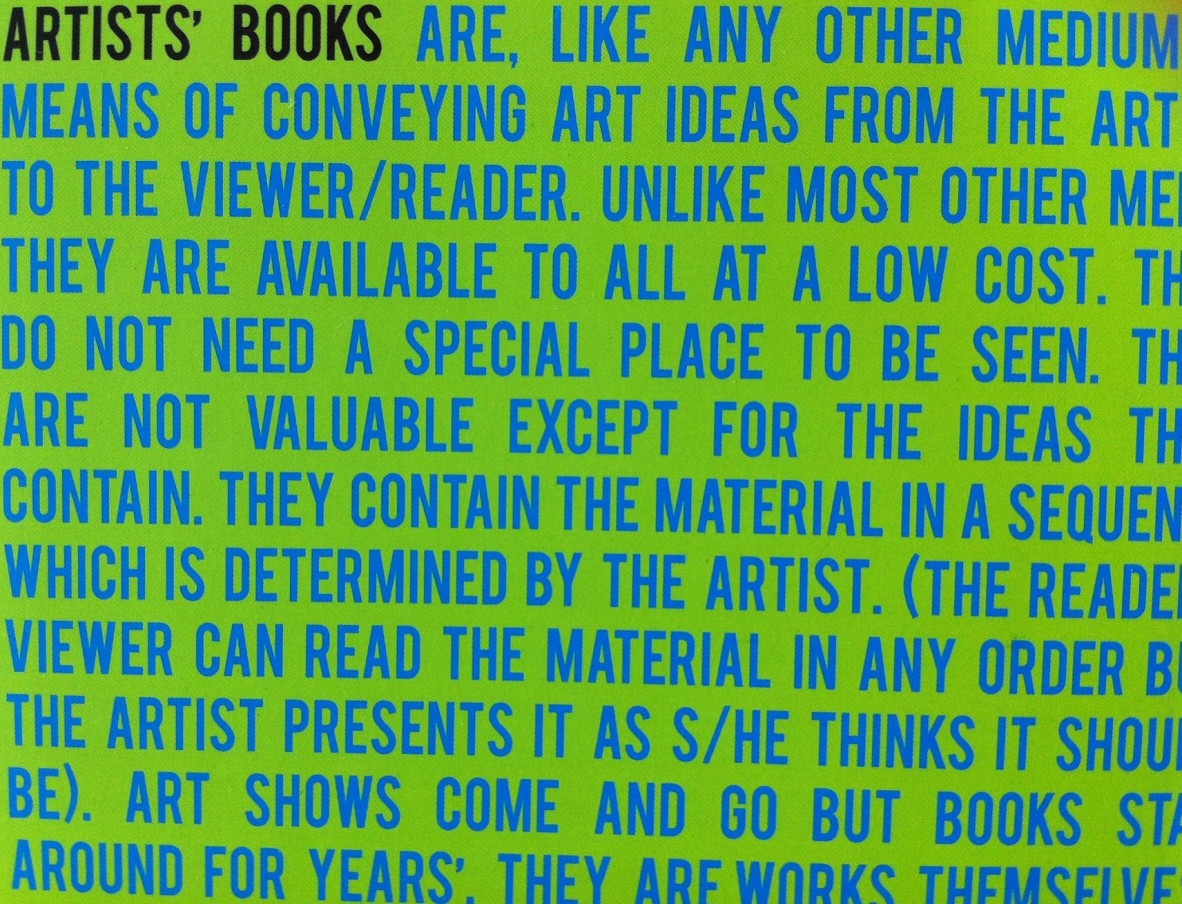Guest blogger Normana Wight has reviewed the conceptual works of Sol LeWitt, sparked by an installation in Queensland Art Gallery for the Asia Pacific Triennial.
‘Artists’ books’ are, like any other medium, a means for conveying ideas from the artist to the viewer/ reader. Unlike most other media they are available to all at a low cost. They do not need a special place to be seen. They are not valuable except for the ideas they contain.’ Sol LeWitt : artist's books/a cura Giorgio Maffei, Emanuele De Donno.

Back cover : 'Sol LeWitt : artist's books'
The above quote is from the Italian book about Sol LeWitt’s artist’s books. LeWitt was a leading Conceptual artist. When he died in 2007, he left behind the means by which his ideas (concepts) could be visualised by anyone reading and viewing his work. LeWitt used these means rather like a recipe book, or any book of instruction for the reader/follower to interpret.
The State Library of Queensland has eight artist’s books by Sol LeWitt in the collection, which provide source material for his keen followers.
A number of his ‘plans’ have been realised on the walls of major art galleries, including the Museum of Contemporary Art in Sydney in 1998; AGNSW and NGV in 1977. The latest interpretation has recently been part of the Asia Pacific Triennial.
In the water mall of the Queensland Art Gallery the South Korean artist, Haegue Yang in a reference to modern art history, has taken a work by LeWitt from 1978-80.
Signage says; Sol LeWitt, Upside Down – Open Modular Cubes (Small), Expanded 958 Times, a site specific work hanging in The Queensland Art Gallery Watermall.’
It was commissioned for the Asia Pacific Triennial; made using 1012 Venetian Blinds, ‘to create a formal immersive structure.
On page 104 of the Maffei book (see above) you can see the sort of work that LeWitt was doing at the time, 1978 – 1980.
Normana Wight
Comments
Your email address will not be published.
We welcome relevant, respectful comments.